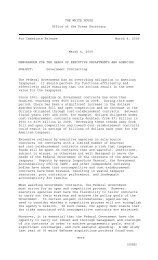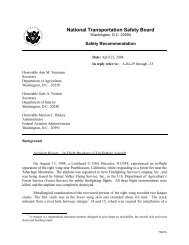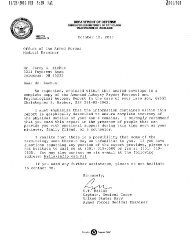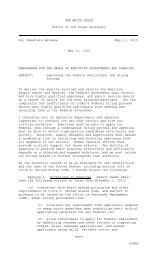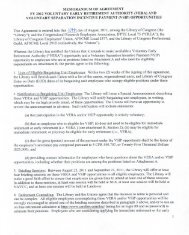Accenture's fifth annual global e-government study
Accenture's fifth annual global e-government study
Accenture's fifth annual global e-government study
You also want an ePaper? Increase the reach of your titles
YUMPU automatically turns print PDFs into web optimized ePapers that Google loves.
Postal<br />
www.tullverket.se<br />
Sweden’s Virtual Customs Office (www.tullverket.se)<br />
is perhaps the most innovative service we saw in the<br />
customs area in the past year. Businesses that have<br />
a credit account at the Virtual Customs Office can<br />
get invoices electronically and pay them via any<br />
online banking service, while those without an<br />
account still have to pay in cash at the border. The<br />
Virtual Customs Office is part of the Swedish quality<br />
initiative, The Stairway. The Stairway enables companies<br />
to receive streamlined and quick customs<br />
handling if they cooperate with the customs office<br />
and allow the office to quality-assure the companies’<br />
own customs-related processes beforehand.<br />
The website of the Virtual Customs Office has a section<br />
where users can search for TARIC classification<br />
codes, which enables them to see taxes and duties<br />
for any goods. The electronic customs declaration<br />
service allows businesses to lodge import or export<br />
entries electronically for clearance. Fast freight companies<br />
and other businesses that use the simplified<br />
process also can communicate their manifests<br />
through this service. To sign documents electronically,<br />
these users use a mobile phone, to which a<br />
unique sign-in code is sent by short messaging service<br />
each time the person wishes to log in. All entries<br />
can then be made and signed electronically.<br />
Postal services frequently are among the most innovative<br />
eGovernment services. Often forced to compete<br />
with private-sector delivery services and personal<br />
e-mail, postal agencies have been compelled far earlier<br />
than other agencies to think with a competitive<br />
mindset. We have seen postal agencies drop services<br />
more quickly than other agencies as well. In a few<br />
cases this year, for example, we saw agencies drop<br />
customer e-mail as an offering. Again, this is probably<br />
due to the agencies’ need to assess market<br />
conditions and move quickly to cut areas that do<br />
not provide a meaningful return. Increasingly, postal<br />
agencies are coupling traditional mail to technology<br />
innovations (personalized stamps, for example). This<br />
trend will likely continue (as opposed to the one that<br />
positions post offices as Internet service providers,<br />
where competition is extreme and marketing requires<br />
special skills).<br />
The following selection of best practice examples<br />
encapsulates the broad range of new services—not<br />
just online counterparts of existing offline offerings—that<br />
demonstrate the service transformation<br />
potential of eGovernment.<br />
Posten in Sweden (www.posten.se) is an excellent<br />
example of innovation born of necessity. Although<br />
Posten is a wholly state-owned company with a<br />
monopoly in certain areas (such as issuing stamps),<br />
in other areas it competes with private companies.<br />
In response to the need to compete, Posten has created<br />
a number of highly competitive online products.<br />
www.posten.se<br />
47





